Petrochemicals rPET China Economy – Will China’s crisis trigger the global crisis? 21-08-2023 - Arhive
Petrochemicals rPET China Economy
Petrochemicals PET-Bottle-grade – Will Indorama be the most prominent player in the PET recycling industry?
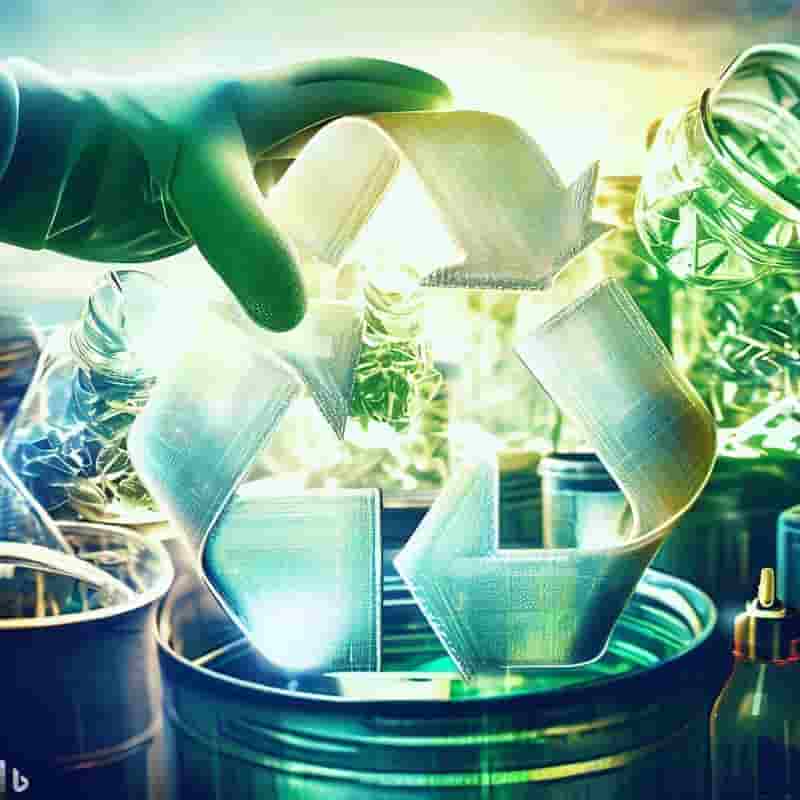
Crude Oil Prices Trend
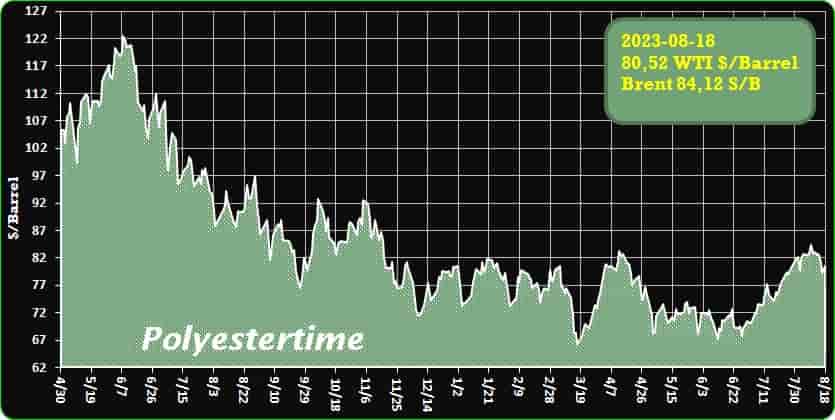
Crude Oil Prices Trend by Polyestertime
Stellantis Commits $100 Million to Geothermal Lithium Production Expansion
In a groundbreaking agreement, Stellantis and Controlled Thermal Resources (CTR) have solidified their partnership, paving the way for a significant expansion in the production of lithium hydroxide, a crucial component for batteries. This collaboration sets the stage for a momentous shift in lithium supply dynamics, with Stellantis investing over $100 million to enhance the production capabilities of CTR’s Hell’s Kitchen project, the world’s largest geothermal lithium initiative.
The initial supply agreement between Stellantis and CTR, signed in June 2022, outlined the delivery of 25,000 tons of lithium hydroxide per year. However, this agreement has now evolved to meet the soaring demand for battery materials. With the revised contract, CTR will supply up to 65,000 tons of lithium hydroxide annually for a ten-year period. This exponential increase in supply not only reflects the growing needs of the electric vehicle (EV) industry but also underscores Stellantis’ commitment to securing sustainable, domestic sources of essential materials. Petrochemicals rPET China Economy
The distinctive feature of CTR’s production process lies in its modular and integrated structure. This design ensures efficient scalability while prioritizing minimal environmental impact and reduced carbon emissions. This aligns seamlessly with Stellantis’ pursuit of eco-friendly manufacturing processes that resonate with consumers increasingly concerned about the ecological footprint of their vehicles.
Stellantis’ investment of more than $100 million will be directed toward the development of CTR’s Hell’s Kitchen project, situated in Imperial County, California. This pioneering initiative revolves around harnessing geothermal energy to extract lithium from brines, a process that represents a significant departure from traditional lithium mining methods. By utilizing renewable energy sources and steam, Hell’s Kitchen is set to yield environmentally conscious lithium products for battery applications, resulting in a reduced reliance on resource-intensive practices like open-pit mining and fossil fuel consumption.
The strategic significance of the Hell’s Kitchen project extends beyond its sustainable production methods. The project is poised to generate a substantial impact on job creation. Through dedicated agreements and the operational workforce, the venture is projected to generate up to 1,420 jobs, injecting vitality into local communities and fostering economic growth.
CTR, short for Controlled Thermal Resources Holdings Inc., is a recognized authority in the realm of critical minerals, lithium battery chemistries, and renewable energy production. For over three decades, CTR has honed its expertise in geothermal plant operations in California’s Salton Sea region. The company’s unwavering commitment to affordable and sustainable renewable energy, alongside its dedication to cultivating a responsible domestic supply chain for lithium products in the United States, solidifies its position as a frontrunner in the clean energy revolution. Petrochemicals rPET China Economy
The symbiotic partnership between Stellantis and CTR aligns harmoniously with Stellantis’ ambitious Dare Forward 2030 strategic plan. This roadmap charts a course towards complete integration of battery electric vehicles (BEVs) into the sales mix, targeting 100% in Europe and 50% in the United States by 2030. To support this electrification initiative, Stellantis aims to secure approximately 400 GWh of battery capacity through six battery production facilities across North America and Europe. The investment in CTR’s Hell’s Kitchen project serves as a linchpin in realizing these goals, facilitating a sustainable battery supply chain while ensuring Stellantis’ adherence to its decarbonization agenda.
Rod Colwell, the Chief Executive Officer of CTR, lauds this monumental investment as a testament to the company’s dedication to responsible battery material production. With the global proliferation of EVs, the imperative to source battery materials responsibly has never been more pronounced. Colwell emphasizes that localizing the battery supply chain not only mitigates supply risks but also elevates socio-economic conditions in disadvantaged communities.
In sum, the newfound commitment between Stellantis and CTR heralds a transformative era in lithium production. By investing in sustainable and innovative approaches like the Hell’s Kitchen project, Stellantis is poised to catalyze the shift towards greener, cleaner energy solutions, setting the stage for a more environmentally conscious automotive industry and a brighter, electrified future. Petrochemicals rPET China Economy
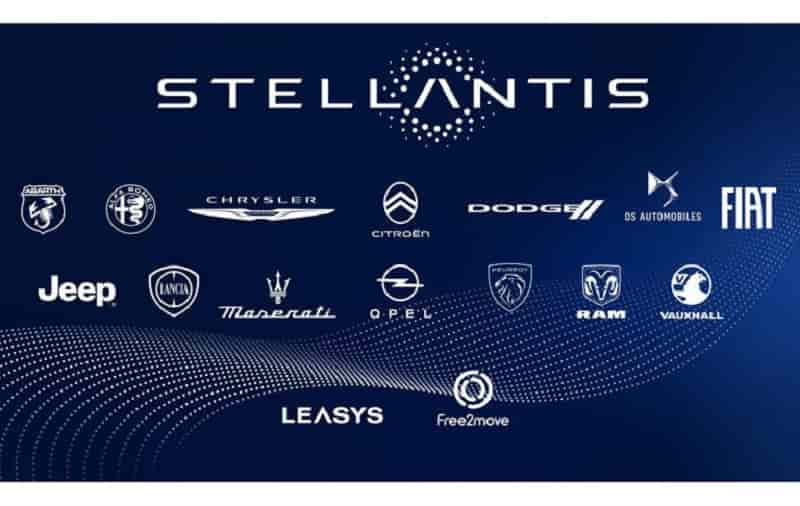
China’s crisis could impact global markets
China‘s economy is grappling with headwinds ranging from an unstable real estate market to weak consumer demand.
Experts told Insider that a worsening situation in China bodes badly for global markets and other economies like the US.
Both US Treasury Secretary Janet Yellen and US President Joe Biden recently warned of China‘s spillover risks.
External content not available
Your privacy settings prevent the loading and display of all external content (e.g. graphics or tables) and social networks (e.g. Youtube, Twitter, Facebook, Instagram etc.). To display, please activate the settings for social networks and external content in the privacy settings .
Change privacy settings
Through decades of steady growth, enormous trade volumes and a growing, productive population, China has developed into a world power with a massive influence on the global economy.
After President Xi Jinping lifted Beijing’s extreme zero-tariff policy in December, experts expected Chinese demand and the economy to return so strongly that the entire global economy would feel the impact of the reopening.
But the opposite has happened, and experts say the effects of China‘s economic slowdown could be felt well beyond the country’s borders.
The world‘s second-largest economy looks strikingly weak in the wake of the pandemic, and its woes have grown to such proportions this month that US Treasury Secretary Janet Yellen, in the same week President Joe Biden likened the country to a “ticking time bomb,” warned of China‘s risks to the US.
Chinese officials have warned experts against portraying the economy in a negative light, even though the data paint a clear picture of a troubled economy.
Data on Tuesday – released less than an hour after a surprise interest rate cut by China‘s central bank – showed China‘s industrial production, retail sales and exports came in weaker-than-expected, and the report ignored youth unemployment, which hit a record high of had reached 21.3 percent.
All of this is happening against the backdrop of an unstable real estate sector, made headlines most recently by the bankruptcy filing of Evergrande, the world‘s most indebted real estate developer, and two missed coupon payments on Country Garden Holdings bonds.
Find out here what all this could mean for the rest of the world markets.
collapsing trade
Given its important role in world trade, China is not solely responsible for these problems.
Alfredo Montufar-Helu, head of the China Center at the Conference Board, told Insider that the country is still responsible for about 30 percent of global growth, and that any slide in the country will have far-reaching repercussions on markets around the world.
“Unlike during the great financial crisis, China will not be the engine of the global economic recovery after the COVID-19 pandemic,” he said. “As the Chinese economy remains under downward pressure, its growth momentum could slow further, which in turn would add to the already significant pressures on the global economy.”
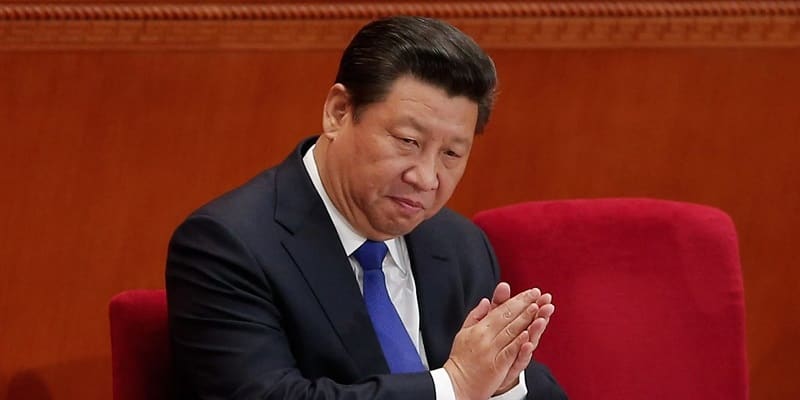
Foreclosed Properties and Surging Auctions: A 20% Surge Highlights China’s Growing Economic Concerns
Following Evergrande’s default on debts owed to Anglo-Saxon creditors and the escalating economic tensions within China, the real estate sector is once again sounding alarm bells regarding the country’s economic well-being. The latest cause for concern stems from revelations about foreclosure rates within the nation, which, coupled with the ongoing economic challenges, paint a grim picture for the Dragon’s economic stability.
China, having exhausted the various exemptions introduced in response to the initial impact of the Covid-19 outbreak and then grappling with the pandemic’s subsequent ramifications, is reeling from the aftermath. Startling data unveiled in the China Index Academy’s recent report divulges a dramatic surge in foreclosures during the first half of 2023 compared to the previous year. Petrochemicals rPET China Economy
Notably, the China Index Academy’s report indicates a staggering 20% increase in the number of foreclosed properties in China from January to June 2023 in contrast to the same period in 2022. The primary driver behind this surge is the incapability of a substantial number of citizens to meet their mortgage obligations or adhere to repayment schedules for their debts. To put it in perspective, a staggering 304,000 properties faced foreclosure within the considered six-month timeframe, equating to over 1,650 properties per day, with 179,000 houses subjected to auction. The province of Henan experienced the most profound surge, witnessing a remarkable 63% increase in such proceedings, closely followed by the southwest province of Sichuan with a notable 51% rise. The China Index Academy additionally raises concerns about the potential for a housing bubble, as certain regions like the Pearl River Delta have seen housing prices reach unsustainable levels.
The defaults by industry giants such as Evergrande have set in motion a chain of events that have eroded the safety nets once provided by intermediaries, who mediated and absorbed bad debts. China’s inherent challenges in managing its post-Covid recovery further compounded the situation. Petrochemicals rPET China Economy
“The roots of the sudden surge in foreclosure rates were sown much earlier, as the process takes at least a year or two to culminate,” explained Wang Shenglan, the general manager of Lanjing Investment Management, in an interview with financial news outlet Yicai. Wang went on to predict that “the deceleration in economic growth will inevitably lead to a higher percentage of mortgage defaulters, consequently leading to an increase in foreclosures next year and even in 2025, though perhaps not exceeding the 20% mark.” With new-build home prices averaging a year-on-year decline of 2.4% and existing home prices plummeting by 6%, millions of Chinese homeowners now face the potential dilemma of repaying mortgages exceeding the current value of their residences, potentially giving rise to market anomalies.
It’s crucial to note that the construction sector accounts for a significant 30% of China’s GDP and remains central to Beijing’s efforts to sustain robust quantitative values. Fitch, a prominent credit rating agency, even hailed it as “the single most valuable sector in the world” in terms of output. A substantial contraction in this sector’s output could deal a significant blow to Beijing’s growth prospects and potentially impact its credit rating. Post-Evergrande, yet another looming challenge for China is navigating these tumultuous waters while avoiding the ripple effects of financial instability.
President Xi Jinping and his administration must work tirelessly to prevent such a contagion and safeguard the developmental claims that underpin China’s economic narrative and model. Petrochemicals rPET China Economy

The Evolving Middle East: Iran-Saudi Arabia Relations and Geopolitical Concerns for the US
The ever-shifting dynamics of the Middle East continue to captivate global attention, with particular focus on the Iran-Saudi Arabia axis and Russia’s ties with nations of the “south.” Amidst this intricate landscape, the United States finds itself increasingly concerned, as recent events signal a changing balance of power that could impact regional stability and Washington’s global influence.
Iran, a key player in the region, remains under the watchful gaze of the United States. The American apprehension stems not only from Iran’s nuclear program, orchestrated by the Ayatollahs but also from the intricate strategies of the Islamic Republic. A recent development sparking curiosity is the unprecedented visit of Iran’s Foreign Minister, Hossein Amirabdollahian, to Saudi Arabia. Until a short while ago, such a diplomatic excursion to the land of the Saud would have been deemed implausible. However, the intervention of China has paved the way for a renewal of dialogue between the two longstanding rivals. Petrochemicals rPET China Economy
This rapprochement follows years of indirect yet intense conflicts, which had entrenched their differences across the hottest theaters of the Middle Eastern chessboard – from Syria and Yemen to Lebanon and Iraq.
During a joint press conference with Saudi Foreign Minister Prince Faisal bin Farhan, Amirabdollahian hinted that relations were moving in a “right direction,” rekindling the possibility of high-level talks between the two nations’ leaders. Echoing this sentiment, Prince Faisal underscored Riyadh’s intent to fortify ties with Tehran, labeling the restoration of diplomatic relations as a transformative “turning point for security in the region.” Such unambiguous statements transcend mere diplomatic formalities, carrying profound implications for regional geopolitics.
In the Middle East, every interaction and pronouncement carries significant weight. This context explains why Amirabdollahian extended his visit to Saudi Arabia to meet with Crown Prince Mohammed bin Salman. Petrochemicals rPET China Economy
As the de facto leader of Riyadh and a recent participant in discussions concerning Ukraine, bin Salman has a vested interest in affirming amicable relations with Iranian counterparts, particularly given China’s growing influence in the regional arena. Notably, this moment is pivotal for the Middle East. The entry of China into the geopolitical stage has upended established parameters, compelling local governments to recalibrate their strategic alignments.
The United States faces the challenge of preserving its presence in a region critical to global stability without appearing to disengage. However, recent events suggest that regional powers are increasingly exploring new avenues without necessarily being tethered to Western interests. The allure of the BRICS – a bloc uniting emerging economies beyond the Western sphere – resonates across Africa and Asia. While not yet equivalent to the complex network of US alliances, recent geopolitical shifts have set off alarms in the White House, prompting concerns about its eroding authority, which historically upheld American leadership in various domains. Petrochemicals rPET China Economy
Against this backdrop, Russia’s sustained ties with nations in the “south of the world,” despite sanctions and the contentious situation in Ukraine, is a troubling indicator for Washington. This concern is exemplified by Iran’s role as a gauge of US apprehensions. For some time, the US has been pressuring Iran to cease drone deliveries to Russian forces, even bringing up the issue during negotiations for the release of American prisoners in Iran. This pressure has intensified, underscored by the Washington Post’s revelation of a joint drone manufacturing facility in Alabuga, Republic of Tatarstan, involving Iranian technicians. Russia’s ambition to produce six thousand drones by 2025 aligns with bleak forecasts for the future of the Ukrainian conflict. As Iran increasingly pivots towards the east and faces mounting sanctions, it appears disinclined to sever its axis with Moscow. As the Islamic Republic eyes membership in the BRICS, observers ponder not only its trajectory but also the prospects for a Middle East undergoing a profound transformation.
In conclusion, the Middle East remains an intricate geopolitical puzzle with Iran-Saudi Arabia relations and Russia’s strategic partnerships in the “south” emerging as significant factors. The evolving dynamics in the region have raised concerns for the United States, prompting a reevaluation of its global influence amid changing alliances and shifting power dynamics. As Iran continues to make diplomatic moves, the global community watches closely, aware that each action carries far-reaching implications for regional stability and the global balance of power. Petrochemicals rPET China Economy
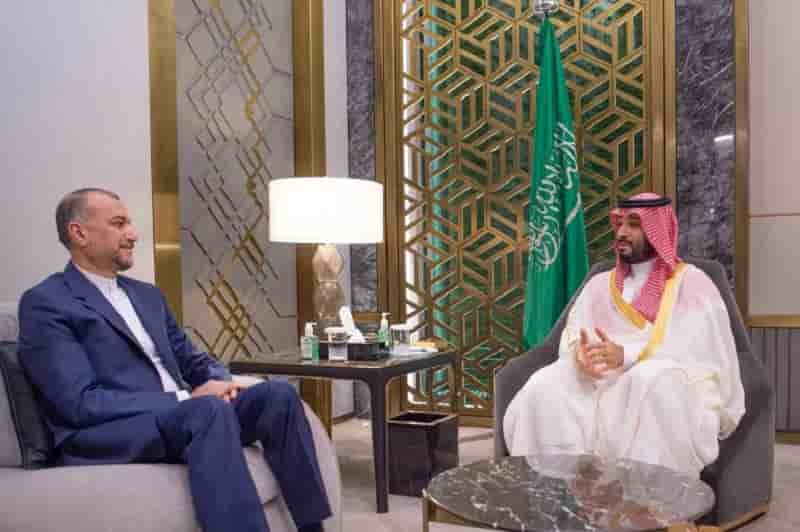
Iveco Embraces the Future: Hydrogen-Powered Trucks Set to Revolutionize Transportation
In a world increasingly attuned to the imperatives of ecological sustainability and carbon emission reduction, the emergence of Iveco hydrogen trucks marks a pivotal development in the transportation sector. The spotlight is firmly fixed on the horizon as Iveco Group, a trailblazer in the field, prepares to unveil hydrogen-powered trucks manufactured in Germany, aligning with global aspirations for a cleaner, more sustainable future.
Amidst a dynamic landscape of transformative innovations, the star of the show is undoubtedly the Iveco hydrogen truck. The endeavor stems from a strategic collaboration initiated in 2019 between the Iveco Group and Nikola Corporation, fueled by the shared vision of developing zero-emission vehicles. This partnership bore fruit in the creation of a joint venture, housing a state-of-the-art production facility in Ulm, Germany. The relationship deepened over four years of productive synergy, culminating in the Iveco Group’s recent announcement of its full acquisition of the joint venture, heralding a new phase in their mutual journey. Petrochemicals rPET China Economy
However, the story doesn’t conclude with the acquisition. Iveco’s determination extends to the manufacturing and marketing of heavy electric trucks, encompassing both battery and fuel cell technologies under its venerable brand. A fusion of cutting-edge components and innovations characterizes these exceptional vehicles: an electric axle from FPT Industrial, a division of the Iveco Group; batteries supplied by Proterra; and fuel cell technology, among other vital elements, forged by the renowned Bosch.
Central to this groundbreaking narrative are two stellar offerings: the IVECO HD FCEV and the IVECO HD Bev. While the former embraces hydrogen propulsion, boasting an 800 km range, surpassing its battery-powered counterpart, the latter stands as a 100% electric marvel with a commendable range of 500 km. Notably, the hydrogen-powered truck can replenish its energy reserves in less than 20 minutes, defying convention and setting new benchmarks. Its hydrogen storage capacity, rated at 70 kg, operates at a pressure of 700 bar. Imminent action is anticipated, with the initial batch slated for delivery in France, Switzerland, and Germany by the close of 2023. Petrochemicals rPET China Economy
A seismic shift in hydrogen mobility dawns upon Europe, driven by the partnership’s audacious strides. Iveco’s alliance with Nikola Corporation has illuminated a pioneering pathway within the zero-emission vehicle realm. This juncture, accentuated by Iveco’s acquisition of the joint venture, propels the conglomerate into an expanded realm of heavy electric vehicles and beyond.
With a nod to the winds of change, Iveco Group and Air Liquide together pioneered Europe’s premier hydrogen refueling station dedicated to heavy vehicles in Fos-sur-Mer, Marseille. This monumental effort seamlessly dovetails with the HyAMMED and H2Haul initiatives, endorsed by the French Government and the European Clean Hydrogen Partnership. The ambition: to seamlessly integrate hydrogen into long-haul transport. Melding Air Liquide’s hydrogen expertise with Iveco’s mastery in alternative fuel trucks, the station has the capacity to dispense up to 1 ton of green hydrogen daily at 700 bar.
Iveco’s endeavors resonate beyond the realm of innovation, wielding tangible impact on markets and the transportation sector at large. These advances align harmoniously with the H2Haul project, funded in part by the Clean Hydrogen Partnership, dedicated to hastening the adoption of hydrogen solutions within commercial transport.
In the grand tapestry of transformation, Iveco Group stands as a vanguard, steering the heavy transport sector onto greener pastures. Their vehicles not only curtail emissions but also deliver peerless efficiency and performance. As society’s yearning for clean energy and sustainable transportation solutions escalates, corporations like Iveco inhabit pivotal roles, scripting the unfolding chapters of our planet’s future. Petrochemicals rPET China Economy

The Economical Advantages of Plastic Recycling
Introduction
Plastic recycling stands as a beacon of sustainability in our modern world, not only benefiting the environment but also generating substantial economic savings. As the world grapples with mounting environmental challenges and resource scarcity, the economic advantages of plastic recycling have become more pronounced than ever. This article delves into the multifaceted ways in which plastic recycling contributes to cost savings across various sectors.
Reducing Raw Material Costs
One of the most compelling economic benefits of plastic recycling is its potential to significantly reduce raw material costs. Traditional plastic production heavily relies on fossil fuels and virgin raw materials, which can be both environmentally taxing and economically burdensome due to fluctuating oil prices. In contrast, recycled plastics can serve as a cost-effective alternative, as they require less energy and resources to manufacture while also mitigating the environmental impact of extraction. Manufacturers utilizing recycled plastics can experience considerable savings by minimizing their dependency on expensive primary materials, thereby increasing their profit margins. Petrochemicals rPET China Economy
Energy Efficiency and Cost Reduction
The recycling of plastics requires substantially less energy compared to the production of virgin plastics. The energy-intensive processes involved in extracting, refining, and processing crude oil into plastic polymers can be circumvented through recycling. By melting and reprocessing used plastics, manufacturers can curtail energy expenditures and subsequent costs. This energy efficiency not only lowers the operational expenses for manufacturers but also aids in reducing the overall carbon footprint, aligning with sustainable business practices.
Waste Management Savings
The improper disposal of plastic waste is a significant concern that incurs vast financial burdens on municipalities and governments. Plastic waste clogs landfills, requiring constant management, and its persistence in oceans and ecosystems leads to expensive cleanup efforts. Through comprehensive recycling initiatives, municipalities can mitigate the costs associated with waste disposal. Diverting plastic waste from landfills not only extends the life of these facilities but also decreases the need to establish new ones, saving local governments substantial expenses in land acquisition and facility construction.
Job Creation and Economic Growth
Plastic recycling can contribute to the creation of job opportunities and local economic growth. Recycling centers, collection facilities, and processing plants require a skilled workforce for sorting, processing, and managing the flow of materials. As recycling initiatives expand, these facilities demand more workers, leading to employment opportunities within communities. Petrochemicals rPET China Economy
Moreover, recycling activities promote a circular economy, fostering innovation and driving demand for recycling-related technologies and services, which can stimulate economic growth.
Brand Reputation and Consumer Appeal
Companies that embrace plastic recycling and integrate sustainable practices into their operations often enjoy enhanced brand reputation and consumer appeal. Modern consumers are increasingly conscious of environmental issues and prefer businesses that demonstrate a commitment to sustainability. By adopting recycling practices, companies can attract environmentally-minded consumers, leading to increased sales and market share. This positive association between recycling efforts and brand image can yield substantial returns on investment, making recycling an economically savvy strategy.
Reducing Regulatory and Compliance Costs
Stringent environmental regulations and compliance standards are becoming more prevalent as governments aim to address plastic pollution and promote sustainability. By embracing plastic recycling, companies can proactively adhere to these regulations, avoiding potential fines and penalties. Moreover, forward-thinking businesses that integrate recycling into their operations can anticipate future regulatory changes and stay ahead of compliance requirements, thus minimizing potential disruptions and associated costs. Petrochemicals rPET China Economy
Conclusion
Plastic recycling emerges as a multifaceted solution that not only addresses environmental concerns but also yields significant economic advantages. From reducing raw material costs and energy expenditures to curbing waste management expenses and fostering economic growth, the economic benefits of plastic recycling are undeniable. As the world continues to grapple with environmental challenges and resource constraints, the adoption of recycling practices stands as a prudent choice for businesses and communities alike. By embracing plastic recycling, stakeholders can forge a path toward a more sustainable and economically prosperous future.
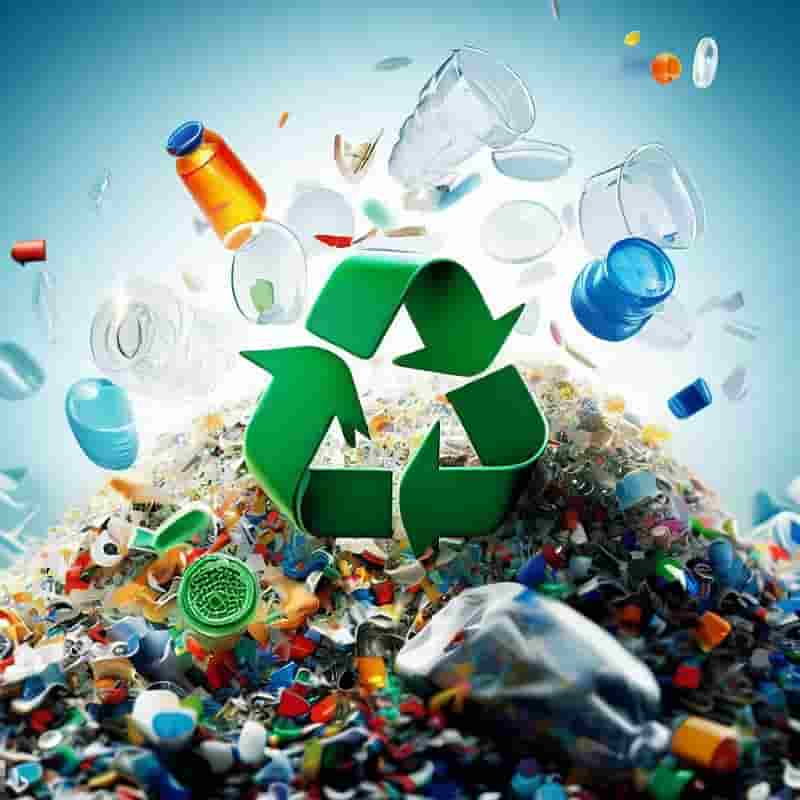
Covestro Achieves a Significant Milestone in Circular Economy: Chemical Recycling of Polycarbonate
The pursuit of a circular economy gains momentum as plastics manufacturer Covestro unveils a groundbreaking method for recycling polycarbonate, a type of multi-chain plastic. This innovative process involves the conversion of plastics back into their fundamental monomers, essentially precursors of plastics. This recycling approach enables these monomers to be seamlessly reintroduced into the production cycle as alternative raw materials, setting the stage for a more sustainable future. Petrochemicals rPET China Economy
Embarking on a journey toward scaling this approach to an industrial level, Covestro initiates the pilot implementation of chemical recycling at its Leverkusen site. Through this transformative process, Covestro aims to fine-tune the methodology, achieving optimization and advancing through subsequent developmental phases.
At its core, the concept of recycling plastics through chemical means supplants the need for primary fossil-based raw materials in manufacturing. Covestro’s strategic vision foresees comprehensive recycling as a pivotal contributor to achieving climate neutrality and safeguarding our precious natural resources and environment. While mechanical recycling of polycarbonate already holds a key position in the company’s recycling strategy, chemical recycling emerges as an important complementary strategy. Mechanical recycling is best suited when waste streams remain uncontaminated and the resultant recycled polycarbonate meets the quality requirements of its intended application.
Chemical recycling unveils an innovative horizon by reconstructing plastic components into their elemental monomers. These monomers can then be isolated and harnessed as raw materials for future plastic production. Notably, chemical recycling expands the scope of recyclability to encompass larger waste streams that may not be conducive to mechanical processes, thereby enabling the creation of high-quality plastics. Covestro’s proactive stance in developing chemical recycling is a testament to its commitment to fostering sustainable practices. Petrochemicals rPET China Economy
The newly unveiled process, a result of collaborative efforts by an international team, introduces a tailored chemolysis procedure designed exclusively for polycarbonate. This novel technique demonstrates its effectiveness by recycling pre-sorted waste streams containing over 50% polycarbonate content. Markus Dugal, Covestro’s Head of Process Technology, elaborates, “Various plastic wastes containing polycarbonate have been successfully processed using this chemolysis technique. This method enables the closure of the polycarbonate cycle by directly producing its precursor, rendering the recycling process exceptionally sustainable.”
A notable feature of this recycling breakthrough is that the recycled product, the precursor of polycarbonate, can be directly utilized as a raw material without further processing. This achievement enables mass balancing and empowers the integration of this recycled precursor into the production of polycarbonate, thereby maintaining high product quality. Lily Wang, Head of the Business Entity Engineering Plastics, underscores the importance of such high-quality recycled raw materials in applications demanding superior attributes, including safety, optical clarity, and aesthetics. Petrochemicals rPET China Economy
This extends to critical sectors such as automotive manufacturing and the realm of consumer electronics.
Transitioning from successful laboratory development, the next phase of advancement involves the technical realization of a continuous recycling process. A pilot plant, currently in the planning stage, is slated to provide invaluable insights necessary for eventual expansion to industrial proportions. With substantial investments totaling millions of euros over the coming years, this pilot plant will take shape in Leverkusen, Germany.
Simultaneously, Covestro remains dedicated to propelling forward additional innovative polycarbonate recycling methods within its research laboratories. This commitment encompasses diverse alternatives, including chemolytic processes, enzyme-based plastic breakdown, and intelligent pyrolysis.
As these promising alternatives mature, they too will undergo piloting and testing, underlining Covestro’s steadfast commitment to redefining recycling paradigms and embracing the principles of a circular economy. Petrochemicals rPET China Economy
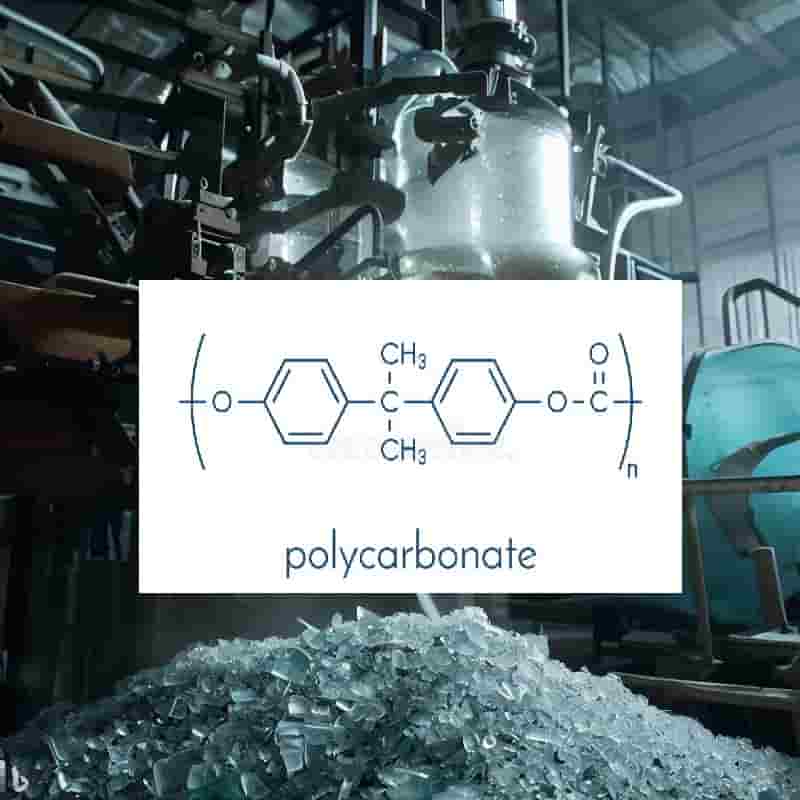
Microplastic pollution CATL battery – Is Superfast Charging Battery the future? 19-08-2023
Petrochemicals rPET China Economy
